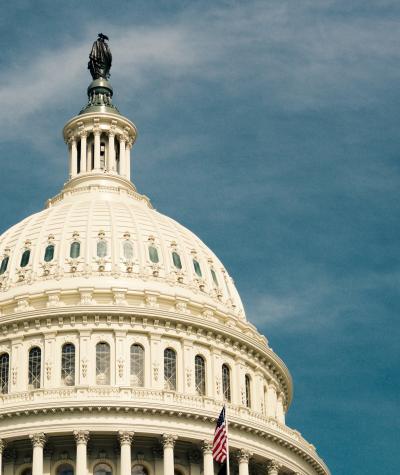The D.C. Council yesterday unanimously passed the Fair Elections Act, and now the bill heads to Mayor Muriel Bowser’s desk to be signed into law.
D.C.’s measure follows a long line of states and localities that have passed public financing laws, or citizen-funded elections, making it clear Americans want every voice heard in the political process, not just those of the wealthy few.
Nearly 30 jurisdictions – from Albuquerque, New Mexico to New Haven, Connecticut – have enacted some form of public campaign financing. Since the end of the 2016 election cycle, a number of state and local governments have approved or are considering innovative public financing programs intended to give candidates an incentive to reach out to a greater share of prospective voters beyond the traditional donor class.
The momentum from these measures stems in large part from the growing resentment from Americans that candidates rely on a tiny segment to bankroll their campaigns, and in turn, curry favor and influence.
According to a recent report by the Bipartisan Policy Center, even as the total number of Americans donating to presidential and congressional campaigns has risen in recent elections, federal candidates increasingly rely on a tiny segment of the U.S. population to bankroll their campaigns.
The report found that fewer than 16,000 individuals accounted for half of all campaign contributions made to federal candidates in 2016; by comparison, over 73,000 individuals were responsible for half of all contributions given to federal candidates during the 2000 election. As the Bipartisan Policy Center’s report points out, a relatively small number of individuals, many of whom are closely connected to the business sector, provided the great majority of the $1.8 billion in total funding raised by federal Super PACs during the 2016 election cycle.
The concept of public financing is not new; Congress and a number of states adopted the nation’s first public financing laws during the 1970s in the wake of Watergate.
The mechanics of public financing programs vary by jurisdiction, but all of these laws generally advance the same objectives: reducing opportunities for political corruption by curbing candidates’ reliance on large contributions from private sources; lessening the financial advantages of incumbents relative to political newcomers; and facilitating interactions between candidates and the electorate at-large.
While public financing has become somewhat of an anachronism in presidential elections, in large part due to Congress’s failure to update the federal law to reflect the costs of presidential campaigns in the age of super PACs, states and municipalities around the country have continued to recognize the viability of public financing as an alternative to privately-funded campaigns.
For example, in 2017, Howard County, MD and Suffolk County, NY approved legislation establishing matching funds programs for local candidates. In 2017, Seattle saw a dramatically diversified and expanded donor base in city elections, due to the Democracy Voucher Program, approved by voters in 2015.
In the year to come, Philadelphia, Denver, Oregon and New Hampshire are considering public financing measures.
Philadelphia has legislation proposing a matching funds program pending before the city council.
This November, voters in Denver, CO will decide whether to approve a ballot initiative that would offer municipal candidates a $9-to-$1 match for contributions up to $50 received from city residents.
A bill introduced this month in the Oregon House of Representatives would institute a Small Donor Elections program for state legislative candidates. The proposed system would provide a $6-to-$1 match to participating candidates for each campaign contribution received from an in-state individual up to $250.
Another bill, introduced in the Virginia House of Delegates, seeks to introduce a hybrid system of public financing in statewide and legislative elections. The legislation would give participating candidates an initial lump sum grant to run their campaigns, and then offer participants a $5-to-$1 public funds match for each contribution received from a Virginia resident, up to a certain amount, throughout the campaign.
And in New Hampshire, recently introduced legislation would create a system of publicly-funded vouchers that the state’s voters could give to their preferred candidates for governor, executive council, and state senate. Under the proposal, every registered voter in the state would receive four $25 “certificates” to assign to participating candidates of their choosing. Candidates then could redeem assigned certificates with the state for campaign funds.
D.C.’s Fair Elections Act would create a hybrid system of public financing for district elections in which participating candidates will receive both an initial lump-sum grant of public funds upon qualification and a $5-to-$1 public funds match for small contributions raised from district residents during the campaign. The Act caps the total amount of matching funds available to each participating candidate in an election cycle, and a participating candidate must abide by special fundraising and spending rules throughout the campaign.
The people of D.C., and the Council, have spoken. Now, Mayor Bowser, will you deliver?
